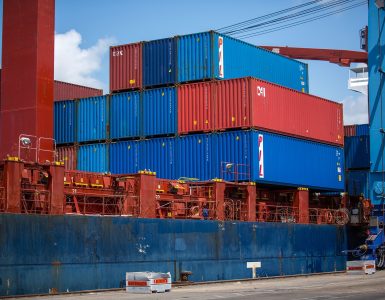A trade deal between two of the largest economies in the world appears imminent.
The United States and Japan announced they have agreed to the “core principles” of a deal after almost a year of bumpy negotiations. American farmers could benefit the most.
“The deal is done in principle,” said U.S. President Donald Trump during a joint press briefing at the G7 summit in France.
“We’ve agreed to every point and now we’re papering it and will be signing at a formal ceremony,” Trump said as he thanked Prime Minister Shinzo Abe. “This is a tremendous deal for the United States. It’s a really tremendous deal for our farmers and agriculture, ranchers and also involves other things, including e-commerce.”
The deal addresses three issues: agriculture, industrial products and e-commerce.
Both Trump and Japanese Prime Minister Shinzo Abe said they expect to sign the final documents at the United Nations General Assembly later this month.
Much needed news
For U.S. businesses and farmers, it was much needed news.
It came just as President Trump implemented another round of punishing 15 percent tariffs on $112 billion of goods from China, with more to come Dec. 15. By year’s end, American businesses that import from China will be paying hefty taxes on almost all goods imported from China – about $550 billion. China retaliated with new 5 and 10 percent taxes on a list of American goods.
The deal with Japan should lesson the pain, Trump tweeted.
“We have excess corn in various parts of our country with our farmers because China did not do what they said they were going to do. And Prime Minister @AbeShinzo, on behalf of Japan, they’re going to be buying all of that corn.”
Japan to buy American meat, grain, dairy and more
During the press briefing, America’s top trade rep, Robert Lighthizer, said the preliminary agreement involves industrial tariffs, digital trade and purchases of American corn, meat, wheat, dairy, wine, ethanol, and other products.
“Japan is our third-largest agricultural market. They import about $14 billion worth of U.S. agricultural products. And this will open up markets to over $7 billion of those products,” he said.
If successful, the agreement should result in a reduction in the U.S. trade deficit with Japan, which was $67.6 billion in goods in 2018, he said.
Breakdown of the deal
Among the goals of the deal:
- Secure market access for American agricultural goods such as beef, pork, wheat, dairy products, wine, ethanol, and more
- Secure large purchases of American corn by Japan
- Reduce tariffs and non-tariff barriers to assist American competitiveness
- Expand digital trade and investment in areas where the U.S. is a leader
- Reduce or eliminate U.S. tariffs on select Japanese industrial products, excluding autos and auto parts.
















Add comment